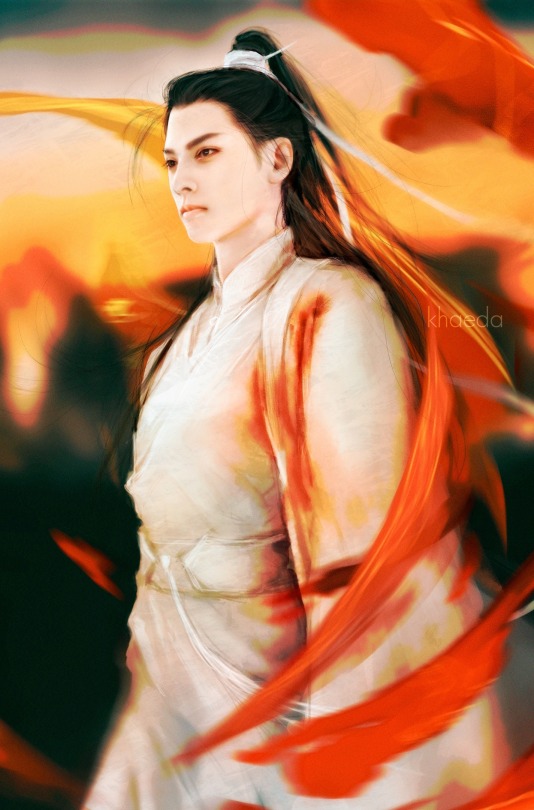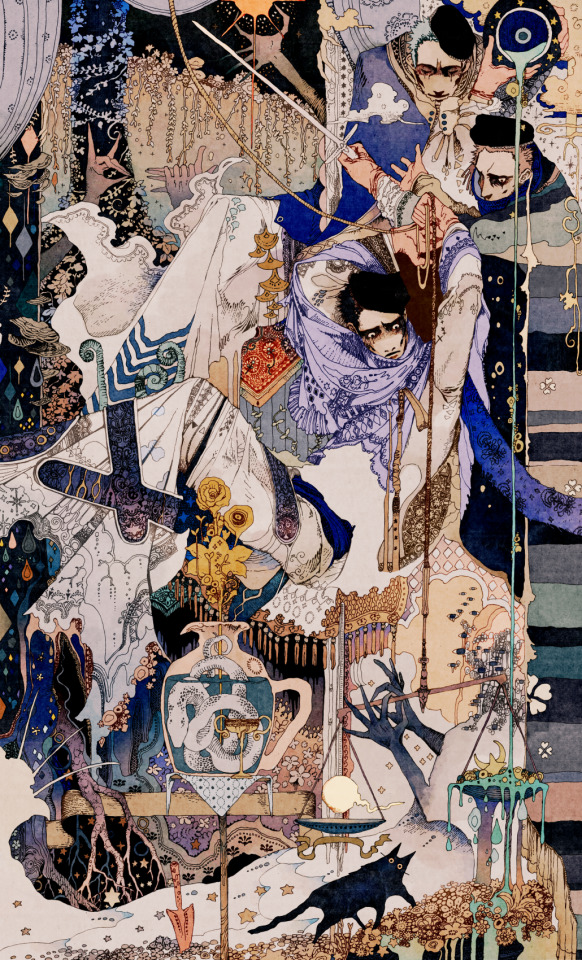Photo
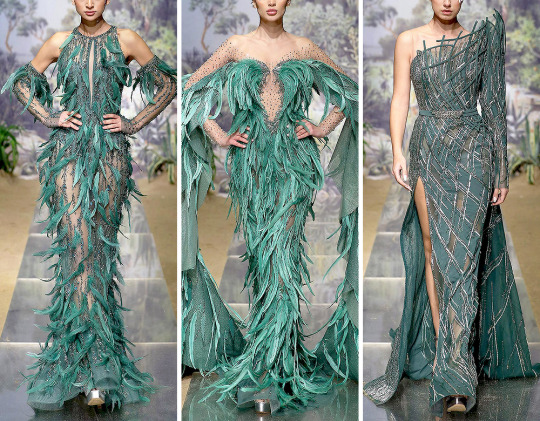
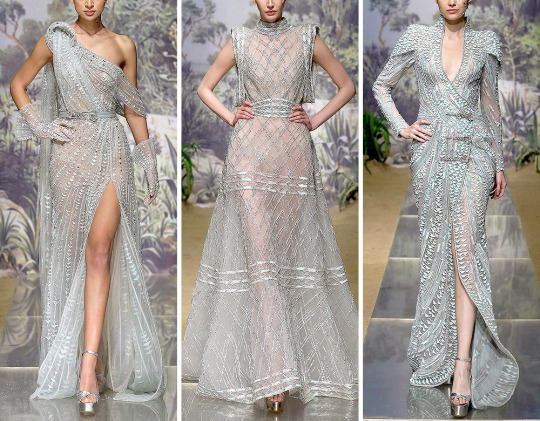
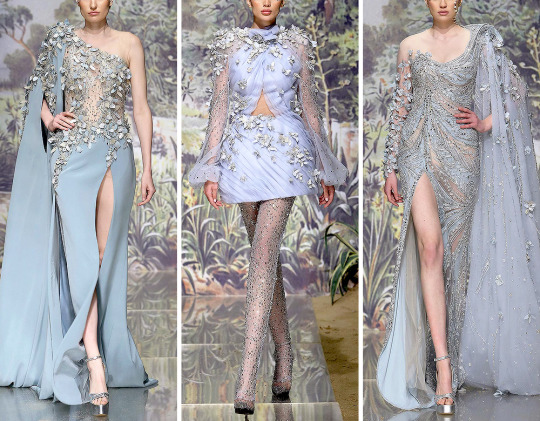

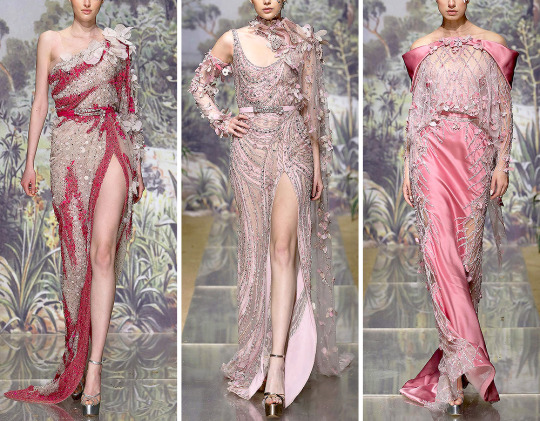
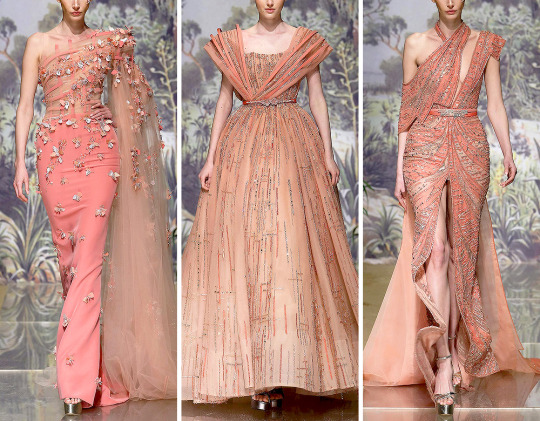


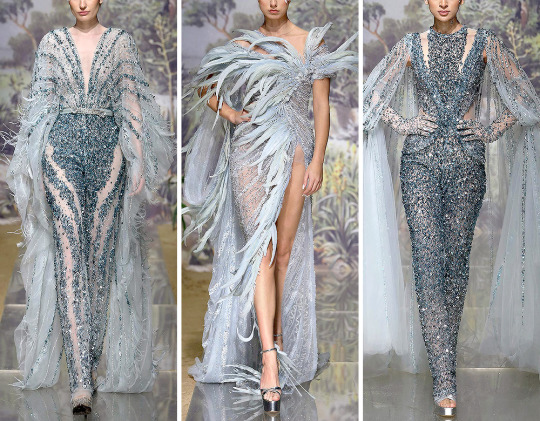
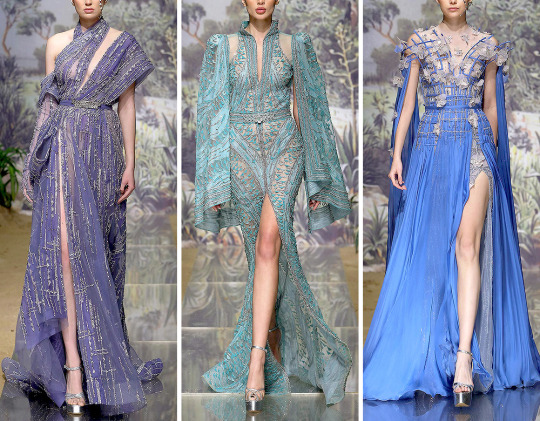
Ziad Nakad ‘Flora’ Spring 2023 Haute Couture Collection
5K notes
·
View notes
Text
Another deleted kiss scene 🥲
79 notes
·
View notes
Photo

Illustration for “The Magic Grammar"
Jessie M. King
2K notes
·
View notes
Photo
Yaaay so cosmic and thought-provoking! Thank you dear!
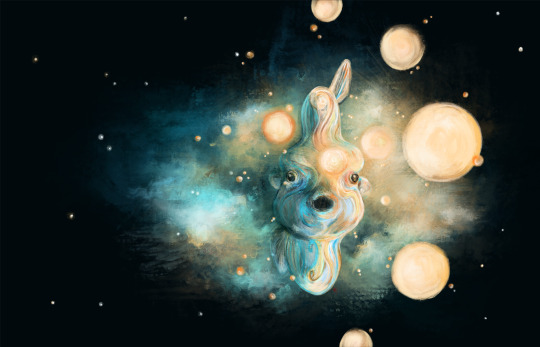
Evermore.
Thank you for the idea @yrretsej
23 notes
·
View notes
Text

Wednesday, my dudes 💚
33 notes
·
View notes
Text









golden moons & stars 💫
1K notes
·
View notes
Text
There comes a time in your life where you have to let go of who you thought you were supposed to be and instead work to make the most of the person you actually are and the life you actually have.
183 notes
·
View notes
Photo
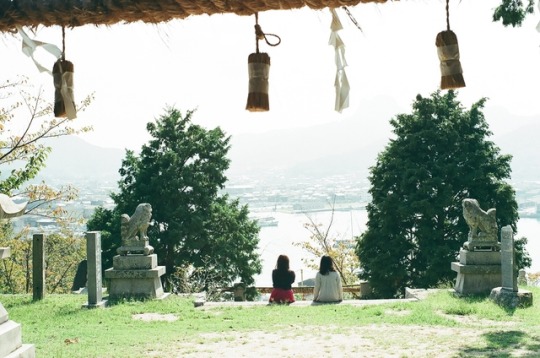
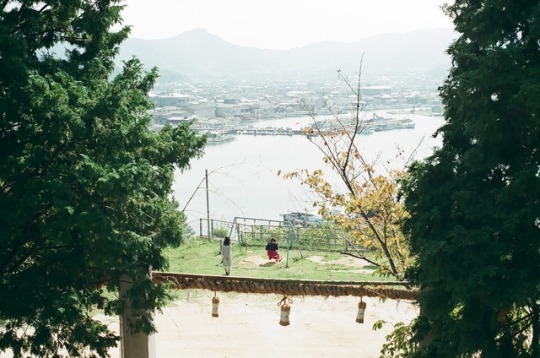


もっと、ゆっくり見て周りたかったな
香川県
329 notes
·
View notes
Photo

84K notes
·
View notes
Text

Oregon Coast
#this is fantastic#the mirrorverse is real#nature#ocean#sky#photos#photo#spiritual#oregon#coast#beauty
4 notes
·
View notes
Video
☀️🌈 - Sacra Luna
11K notes
·
View notes
Text
Black Water Arc: War of The Water Tyrants.
“Wind’s ontology refuses to take separateness as an inherent feature of the world. […] And this is, in part, wind’s value—it has an existential precondition that appears only in the context of contact. Wind is touching, mutual, moving.”
— Cymene Howe, Ecologics
It seems overly contradictory to start a piece about water tyrants with a quote about the wind, doesn’t it? In actuality, readers of the novel would find this comparison immensely appropriate. This is because although black water arc is about the head-to-head battle between Shi Wudu and Hexuan; the center point, the cause and the final effect of this whole arc is Shi Qingxuan.
“Existential Precondition” or fate. It is ironic that wind is described as such because that is essentially Shi Qingxuan’s inherent problem and “Refuses to take separateness” was Shi Qingxuan’s ultimate solution.
Short Summary:
The infant Shi Qingxuan has a curse placed upon them. The curse prophesied a life full of unfathomable hardships for Shi Qingxuan and that is now their fate. Their brother, Shi Wudu, who is extremely protective of his sibling, is bent on saving Shi Qingxuan from this curse. Shi Wudu being naturally gifted eventually ascends as a god, he uses his position in the heavenly realm to then help his younger brother ascend to godhood as well. It is eventually revealed that Shi Wudu secretly changed his sibling’s cursed fate with another person of similar name and better fortune.
The person in question is Hexuan. Hexuan was fated to live a prosperous life and ascend as a god but instead lives with tragedy latched onto him. He goes through poverty, false accusations, abuse and all of his loved ones die under heartbreaking circumstances. Hexuan eventually dies and returns as a vengeful ghost bent on punishing the one that had wronged him. Hexuan wants justice and since the gods refuse to pass judgement, he decides to come to a verdict on his own. In short, that is what black water arc is about: Judgement. In a grey situation, where exactly do we place the blame?
On Morality:
Shi wudu verses Hexuan, ‘The war of the water tyrants’ dilemma, is one of the most mind-blowingly well thought out cases of grey morality in literature. It is no secret that the reductiveness of morals into “good” and “evil” categories is one of mxtx’s main themes often explored heavily in her previous works. The author rejects the absolute extremes in character viewpoints, both in her protagonists and antagonists and applies the concept in varying thoughts including race and politics.
The difference in this arc however, is the projection of the audience’s principles into each character. That is, between Hexuan and Shi wudu, she never specifies who the antagonist is. It is left to the readers to explore, reflect and come to an understanding on what exactly it is like to venture into the grey zone. Neither of the two were selfishly driven, none of their initial intentions stemmed from hatred. It was familial love that drove them to hurt one another, familial love that blindsided them. In their quest to protect and to avenge their family, innocent family members lost their lives or were hurt; on both their parts. This is where the definitions of victims and perpetrators get skewed. It is so skewed in fact, that the only valid testimony left is the reader’s sentiments for the characters and their own self-principles.
From Shi wudu’s “Everything I have today, I fought for myself… I will change fate that I do not possess. My fate is up to me and not the heavens” is the will to fight predestination. Verses, Hexuan’s “What right did he have to suck another’s blood, trample another’s bones to reach the skies, and still maintain a peace of mind. Enjoying all such luxuries without any sense of burden?” the victim of the change in predestination. Two strong, commendable principles, founded by righteousness but blinded by arrogance and hatred. Later, to maintain a peace of mind, Hexuan tramples on Shi Qingxuan and in the process of fighting for oneself, Shi Wudu ultimately changes Shi Qingxuan’s fate for the worse.
We even witness the Shi Wudu’s blindness take a terrible turn at the very end when he attempts to strangle his own sibling that he fought to protect all this time. His belief that Shi Qingxuan will not be safe without him, his lack of trust in his own brother, is part of his arrogance.
In return, we see Hexuan’s blind hatred falter for a moment when he keeps giving Shi Qingxuan chances for safety. At the finish line, we see both the water tyrant’s own morals and goals swap. This change in attitude towards Shi Qingxuan’s future is another outstanding ploy by mxtx because expectation of a good outcome is the core of morality. In the end, the readers simply wish for a good ending for Shi Qingxuan and when Shi Wudu decides he is going to die together with his sibling, it confuses the audience. There is a shock factor added, you perceive Shi Wudu as the protector and he pulls the safety rug from under your feet. Instant shock and confusion violating the purity of the absolute good, so the reader’s immediate reaction is to look for safety in the not-absolute evil i.e. Hexuan. However, when Hexuan does not provide that complete comfort at the end, only slightly appeasing everyone, it stings. Reinforcing that cognitive blend of mixed morality into reader’s beliefs, further skewing the curve.
It is this kind of writing that creates a split in the fandom, not in a bad way, but more in terms of sparking a conversation about where people’s individual morality lies. Each character has their past, their reasons, their flaws and goodness and it gives the audience something to root for. In addition, the rooting is not a hundred percent good versus bad, because each character’s choices are equally flawed. The fandom selects a side but with one foot still lingering on the other territory. Siding with Hexuan but understanding the reasoning behind Shi Wudu’s actions or siding with Shi Wudu but sympathizing with Hexuan’s pain and loss. The uneven split is how you know the characterization was not mediocre.
In regards to characterizations, Shi wudu and Hexuan are too similar. Their personalities, personas, auras; the proud, stubborn, intelligent water tyrants. We speak of these likenesses because Shi Qingxuan lives through this battle and will never be able to unsee the similarities. Hexuan remains, a walking reminder of Shi Wudu. This feels deliberately done as the final stab to the readers, so that Shi Qingxuan and Hexuan’s relationship remains unmendable.
Pure Point of Views, Shi Qingxuan and Xielian:
Wind is invisible, its apprehension comes from its exposure to objects or in this case other people. Shi Qingxuan is air, pure, lively and touching, forming a comforting contact with everyone they meet. The kind of character that brings about a reader’s protective instinct, in a sense, if anything were to happen to them it will infuriate and break the audience. A classic plot device to draw emotions from the readers. Why must this innocent child suffer for the sins of their brother? But, mxtx urges us to rethink this by wondering the same for Hexuan’s family. They were innocent too, why did they have to die on this path? Why is Shi Qingxuan’s innocence valid and not theirs? The audience feels for Shi Qingxuan because we have become familiarised with them. Shi Qingxuan has now made that connection with the readers, the wind has touched their hearts versus only receiving glimpses of what was Hexuan’s previous family. The effect is lacking that familial impact, that bond. Classic writing schemes, beautiful.
At the end of the clashing of the waves, the person left with the permanent scars was the blameless Shi Qingxuan. Their life was molded and directed into this final point without their control, as if caught in a sea storm. The one that paid for this feud was ultimately Shi Qingxuan, the person neither of the other two wanted to hurt.
Another classic writing device I want to finally explore and praise is the use of the narrator to throw the audience off the culprit’s scent. The mystery of Black Water Arc was quite simple actually, mxtx layed out all the clues and hints for the audience out in the open. Like Xielian himself states later, the simplest answer was always visible, he was just overthinking things. And if Xielian, the semi-narrator, overthinks then the audience will overthink. Xielian, an intelligent and the fundamentally good person, exudes a trusting aura. The audience cannot help but trust his judgement and perception of things, it is a credibility built from our experience with his mystery solving abilities in the previous arcs.
The reason why the black water reveal was so impactful and shocking was because of Xielian. The semi narrator continuously made excuses for MingYi, his subconscious trusted him, even if he had his suspicions. He didn’t enforce them strongly enough, leaving the audience to believe Xielian was merely exploring a wrong option for the sake of eliminating possible culprits. The audience was not viewing MingYi as a culprit, rather they were waiting for Xielian to come to the inevitable conclusion of his innocence. An item to quickly cross off the checklist so that they could finally pursue the “real” culprit.
MingYi couldn’t use the Earth Master Shovel? Xielian makes the excuse for him before the audience can even dive deeper on that thought. HuaCheng draws suspicion back to MingYi and Xielian immediately doubts his most trusted confidant’s assumptions. Xielian trusts MingYi, so we trust MingYi against our better judgement. When the narrator has left no room for mistrust, how can the audience hold their stance?
The proficient push and pull charade played out by Hexuan and Huacheng is another impactful factor that took part in diverting Xielian’s mistrust. The nefarious roles they played policing and suspecting each other, from Hexuan’s “don’t you have spies in the heavens?” to Huacheng’s lie detecting dice game. The solid plan of the two suspicious individuals doing the dirty work for Xielian, did not allow Xielian to mold his thoughts in his own way. He was led astray whilst the other two worked together to draw trust onto each other. So, the audience did not have room for doubt either.
In addition to all of that, the most fundamental foundation to Xielian’s trust for MingYi was that fact that he was the one who saved him from Huacheng in the first place. Simply because of the ghost city arc, we already place Huacheng and Hexuan on opposing sides rather than assuming they were accomplices. Furthermore, because of Xielian’s trust in Huacheng’s intellect and his belief of Huacheng’s prejudice against MingYi; he would constantly monitor Huacheng’s reaction to his own deductions. Unfortunately, Huacheng was a terrible basis point and by the time Xielian realizes it, it is too late. An ingenious tactic.
The author led us off track in such a brilliant manner, I had to sing praises at the end of this piece. The way our mind perceives people or situations, is the essence of our moral compass. The mind is subjective, so subjectivity in judgement is ever present, ever grey.
Notes:
This unforgettable and excruciatingly tragic arc is an important turning point in the book and we are all aware that it does not need a special summary. However, I wanted to start with a bit of a reintroduction, just to stay true to the essay tradition. Is this an essay? A think-piece? An analysis? I would not dare shame any of those academic classifications by claiming to be writing as such.
I hope this was enjoyable to read.
twitter link
40 notes
·
View notes
Photo

Once in a blue moon.
86 notes
·
View notes
Photo
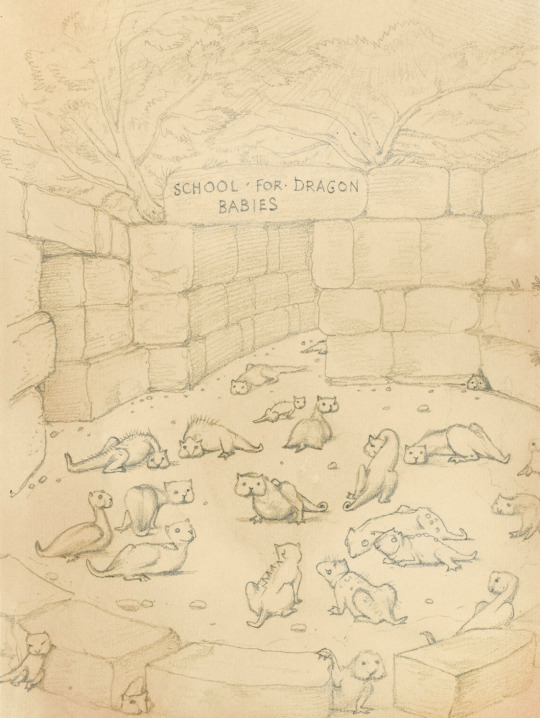
Sir Edward Burne-Jones, School For Dragon Babies, 1884, pencil on paper
111K notes
·
View notes
Video
this is the healing we all needed. thank you and be blessed for your input and your healing powers.
also Katara as the ambassador is my all-time favourite ZK headcanon for their postcanon romantic development. it’s like after all these years my dream for them has come fulfilled OH DEAR
Zutara Week 2020 Continuation: Reunion Part II
In case Tumblr can’t play the video here’s the Vimeo Link
I couldn’t help myself.
Shoutout to @crayolasaurus again and their Zutara - peace AMV. It sparked this image in my head of a continuation of Zuko and Katara’s meeting in the Reunion animatic. It kept me up at night, honestly, so I had to make this! It takes place later in the day following the events of Reunion Part I. Katara is settling in at the palace as the Southern Water Tribe Ambassador and is taking some time to decompress out in a breezeway, and after he had returned to a long day of Fire Lord duties and state business, Zuko follows up with her there. Both stripped of artifice and defenses (he’s in casual wear, she’s without her water pouch)… and they are able to enjoy each other’s company finally… as old friends… and more.
Music used:
Peace by The Track Team for Avatar: The Last Airbender
Reconciliation by The Track Team for Avatar: The Last Airbender
No reposting the video, please.
Further ramblings below the line
Keep reading
#zutara#always#every time it feel you're outta this painshipping for good smth happens and you realize you can never leave#it's like Hotel California in a way#such a painful yet glorious ship#painshipping#video#atla#ambassador
10K notes
·
View notes

